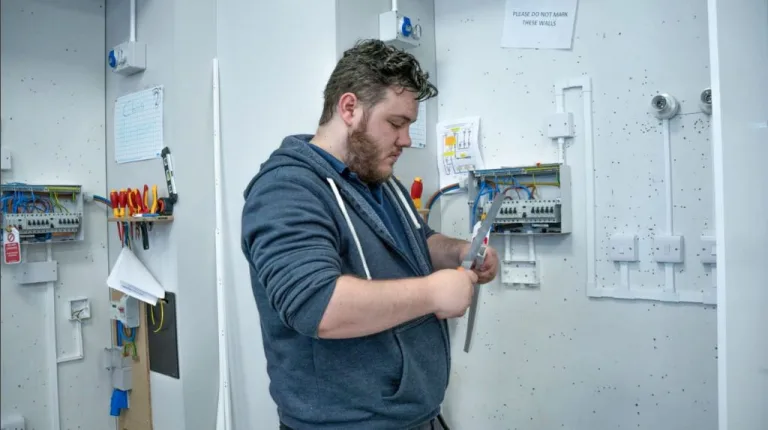How to Prevent Burns on the Job
Nobody expects to experience a severe burn at any point, but it unfortunately happens to thousands of people every single year. And if your job puts you in close proximity to certain factors, you could face a higher than average risk.
“Some of the most essential jobs put employees at inherent risks of serious injuries,” the burn injury lawyers at Matarazzo & Lubcher explain. “Whether you are a welder, plant worker, or firefighter, you are in regular danger of suffering a burn injury due to electrical contact, flame, or other heat sources.”
With this reality in mind, protecting yourself from burn injuries at work is critically important. Here are five practical and actionable ways you can prevent burns and keep yourself safe on the job.
- Use Proper Personal Protective Equipment (PPE)
When working in environments with intense heat, flames, electricity, or chemicals, your first line of defense is always your PPE. Proper equipment significantly reduces your risk of injury, but only if used correctly and consistently.
Make sure you’re fully equipped with gear appropriate for your specific hazards:
- Heat-resistant gloves to protect your hands during welding, soldering, or metalworking.
- Fire-retardant clothing that covers your arms, legs, and torso, preventing burns from sparks, flames, or molten metal.
- Face shields and goggles to protect your eyes and face from intense heat, splashes, and sparks.
- Insulated boots to guard against electrical burns and heated surfaces.
Also, routinely inspect your PPE for wear and tear. Even small damage can compromise effectiveness, putting you at increased risk. So, don’t hesitate to replace damaged items promptly.
- Follow Strict Safety Protocols and Training
Your employer is responsible for providing clear, comprehensive safety guidelines and thorough training, especially when your tasks involve high-risk activities. But it’s your responsibility to follow these protocols every single time.
Safety procedures may sometimes seem redundant or overly cautious, especially when you feel confident in your skills. Yet burn injuries often occur precisely when you let your guard down.
Knowing this, always adhere to established protocols, such as correctly grounding electrical equipment, verifying power shutdowns before working on machines, and carefully monitoring chemical exposure and containment.
Regularly refresh your training, even if you’ve performed a task many times. Procedures and equipment evolve, and maintaining sharp knowledge can mean the difference between safety and serious injury.
- Maintain a Clean, Organized Workplace
One often-overlooked aspect of burn prevention is keeping your workspace organized and free of clutter. Accumulated debris or scattered tools dramatically increase burn risks.
Practice good housekeeping habits daily:
- Clearly mark areas with burn hazards and enforce restricted access.
- Properly store chemicals, keeping them sealed and away from heat sources.
- Regularly clear your workspace of combustible materials or unnecessary items.
- Immediately clean up chemical spills, and remove oily rags or debris.
An organized environment reduces your exposure to unnecessary risks and helps you react more effectively in case of an emergency.
- Recognize the Specific Risks of Your Job
Different jobs carry different burn risks. Understanding your particular work environment is crucial for effective prevention. As a welder, your main concern may be sparks, heat, and molten metals. As an electrician, you’re focused on preventing electrical burns and shock hazards. Chemical plant workers face unique challenges due to corrosive substances or explosive chemicals, while firefighters deal directly with intense flames and heat.
Take the time to fully grasp these specific risks. Participate actively in workplace safety meetings, ask questions, and stay informed about potential hazards. Proactive awareness, like this, will enable you to spot potential dangers before they become accidents.
- Respond Quickly and Properly to Emergencies
Despite taking preventive steps, emergencies can still happen. Knowing exactly how to respond during a burn incident significantly affects your outcome and your recovery. Do your best to familiarize yourself thoroughly with your workplace emergency plan, including:
- First aid procedures: Know how to treat different types of burns – thermal, chemical, and electrical – immediately. Quick intervention can dramatically reduce burn severity.
- Location of first aid kits and emergency showers: In chemical environments, know exactly where emergency wash stations and eye-rinse stations are located.
- Proper evacuation routes: Know where to go in case of fires or chemical leaks.
In the event of an injury, report it immediately to your supervisor. Delayed reporting can worsen your injury and complicate your claim for workers’ compensation.
Your Rights If a Burn Injury Occurs
Even when you take every possible precaution, accidents can still occur. It’s essential to understand your rights as an employee. If you suffer a burn injury due to workplace conditions, equipment malfunction, or lack of proper safety protocols, you’re likely entitled to workers’ compensation benefits.
Don’t hesitate to consult with a burn injury lawyer if you have trouble obtaining these benefits, especially if your employer or their insurance carrier is disputing your claim.
Prioritizing Your Safety and Well-being
Burn prevention is based on the premise of actively safeguarding your health, your future, and your family’s well-being. With this in mind, remember that every effort you make to prevent burns is an investment in your future. You deserve a work environment that prioritizes your health and safety. And by taking these practical steps seriously, you actively contribute to a safer workplace for everyone around you.






